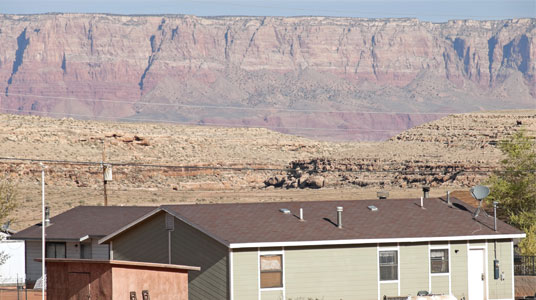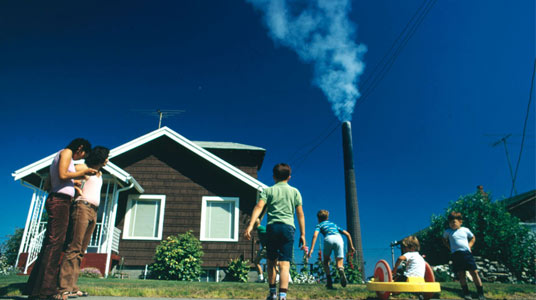The Centers of Excellence on Environmental Health Disparities Research program is a collaborative effort supported by NIEHS, the National Institute on Minority Health and Health Disparities (NIMHD), and the U.S. Environmental Protection Agency (EPA) that encourages basic, biological, clinical, epidemiological, behavioral, and/or social scientific investigations of disease conditions that are known to be a significant burden in low socioeconomic and health disparate populations. The Centers, funded through a P50 grant mechanism, support research efforts, mentoring, capacity building, research translation, and information dissemination, and are designed to address program-specific research priorities.
The boxes below show the primary areas of research of the five EHD Centers along with key questions they are addressing related to health disparities.

Cumulative effects
How do the cumulative effects of exposures to multiple environmental chemical contaminants combine with the effects of social stressors to affect health, and what is the role of genetics and epigenetics in relation to these exposures?

Differential exposures
How are different socioeconomic groups exposed differentially to environmental hazards and what are the drivers for such exposure scenarios?

Land use considerations
How do different land uses and land use decision-making processes contribute to environmental health disparities, and what approaches can communities take to reduce these impacts?

Built environment
How does proximity to transportation infrastructure affect the levels and types of exposures? How does poverty contribute to indoor and outdoor air pollution in residential settings?

Environmental sustainability
How do sustainable approaches reduce disproportionate health burdens and build community resilience? How will improvements in environmental health literacy enable a sustainable lifestyle?

Community engagement in research
How can researchers provide culturally sensitive translation of findings to stakeholders, promote engagement with community members, and build capacity in environmental health literacy and risk prevention?
Program Contacts
NIEHS Program Staff
-
Claudia Thompson, Ph.D.
Branch Chief, Population Health Branch -
P.O. Box 12233Mail Drop K3-04Durham, N.C. 27709
Tel 984-287-3330
Fax 919-541-4937
thompso1@niehs.nih.gov
-
Liam O'Fallon, M.A.
Health Specialist -
P.O. Box 12233Mail Drop K3-12Durham, N.C. 27709
Tel 984-287-3298
Fax 919-316-4606
ofallon@niehs.nih.gov
NIMHD Program Staff
-
Nishadi Rajapakse, Ph.D.
NIMHD Program Director -
BG 2DEM RM 800
Mail Stop 5465
6707 Democracy Blvd
Bethesda, MD 20817
Tel 301-496-4338
chandima.rajapakse@nih.gov
-
Michael Sayre, Ph.D.
NIMHD Program Director -
BG 2DEM RM 800
Mail Stop 5465
6707 Democracy Blvd
Bethesda, MD 20817
Tel 301-435-0962
sayrem@mail.nih.gov
EPA Program Staff
-
Maggie Breville, Ph.D.
Project Officer for National Center for Environmental Research -
USEPA Headquarters
William Jefferson Clinton Building
Mail Code: 8723P
1200 Pennsylvania Avenue, NW
Washington, DC 20460
Tel 202-343-9779
breville.maggie@epa.gov
-
Sylvana Li, Ph.D.
Water, Health, and Innovation Division Director -
USEPA Headquarters
William Jefferson Clinton Building
Mail Code: 8725R
1200 Pennsylvania Avenue, NW
Washington, DC 20460
Tel 202-564-7634
li.sylvana@epa.gov
NIEHS Grants Management
-
Lisa A. Edwards
Grants Management Officer, Superfund -
Tel 984-287-3258
Fax 301-480-2725
archer@niehs.nih.gov
to Top


